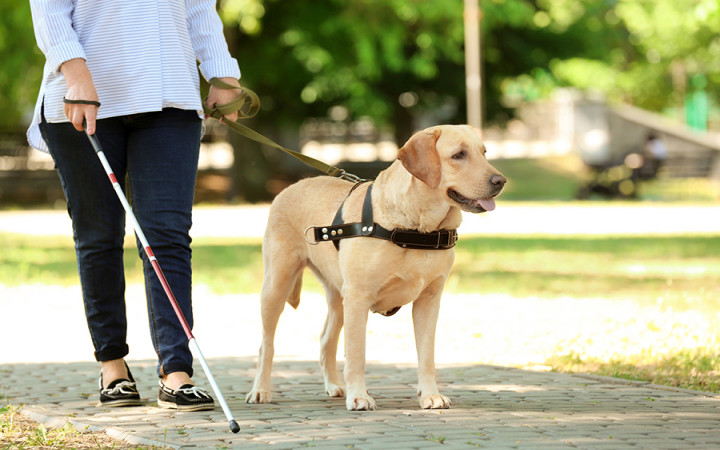Do you have a best friend? Most kids have a variety of friends from school, church, sports teams, and the neighborhood where they live. But there's often that one friend who's a bit closer than the others.
Sometimes that best friend is almost like a member of the family. In fact, that BFF (best friend forever!) is often furry and has a wagging tail that greets you every time you walk in the door.
Yes, we're talking about man's best friend, otherwise known as the dog. If you've ever known the friendship of a dog, you know how loyal — not to mention adorable! — they can be.
For some people with disabilities or emotional struggles, dogs can be therapeutic and a faithful companion. Known as service dogs or therapy dogs, these animals go beyond being pets to provide valuable services.
Many people think the terms are interchangeable, but therapy dogs and service dogs are distinctly different. They each have unique jobs that make them special.
For example, service dogs help people with disabilities to perform tasks they can't do for themselves. In doing so, they keep their disabled partners safe and assist them in living independently.
Thanks to the Americans with Disabilities Act, service dogs are allowed to go in public places where dogs are usually prohibited, such as public transportation, stores, and restaurants. They usually wear a vest that indicates that they're a working dog, which means you should not pet a service dog if you see one in public.
Therapy dogs, on the other hand (or paw!), are meant to be petted. Their purpose is to provide affection and comfort to people who may be battling depression or stress.
Unlike service dogs, therapy dogs do not have special legal access to be in public places. Instead, they're usually invited to special locations, such as schools, nursing homes, hospitals, and retirement homes to bring a bit of joy to the groups of people they visit.
Service dogs are paired with one disabled individual, while therapy dogs can provide comfort and affection to many people. There is one other type of working dog that's a bit of a mixture of service dog and therapy dog: the emotional support dog.
Emotional support dogs are paired with individuals. Rather than performing the types of tasks service dogs perform, however, they provide emotional comfort through companionship with their owners.
Emotional support dogs do not have the same types of legal protection as service dogs. They do, however, enjoy two special benefits: they can fly on an airplane and they can live in housing that otherwise bans pets.











Desi Lamb
Desilamb
kaden
griffin
lulu
Nick F
Marissa
jazmine